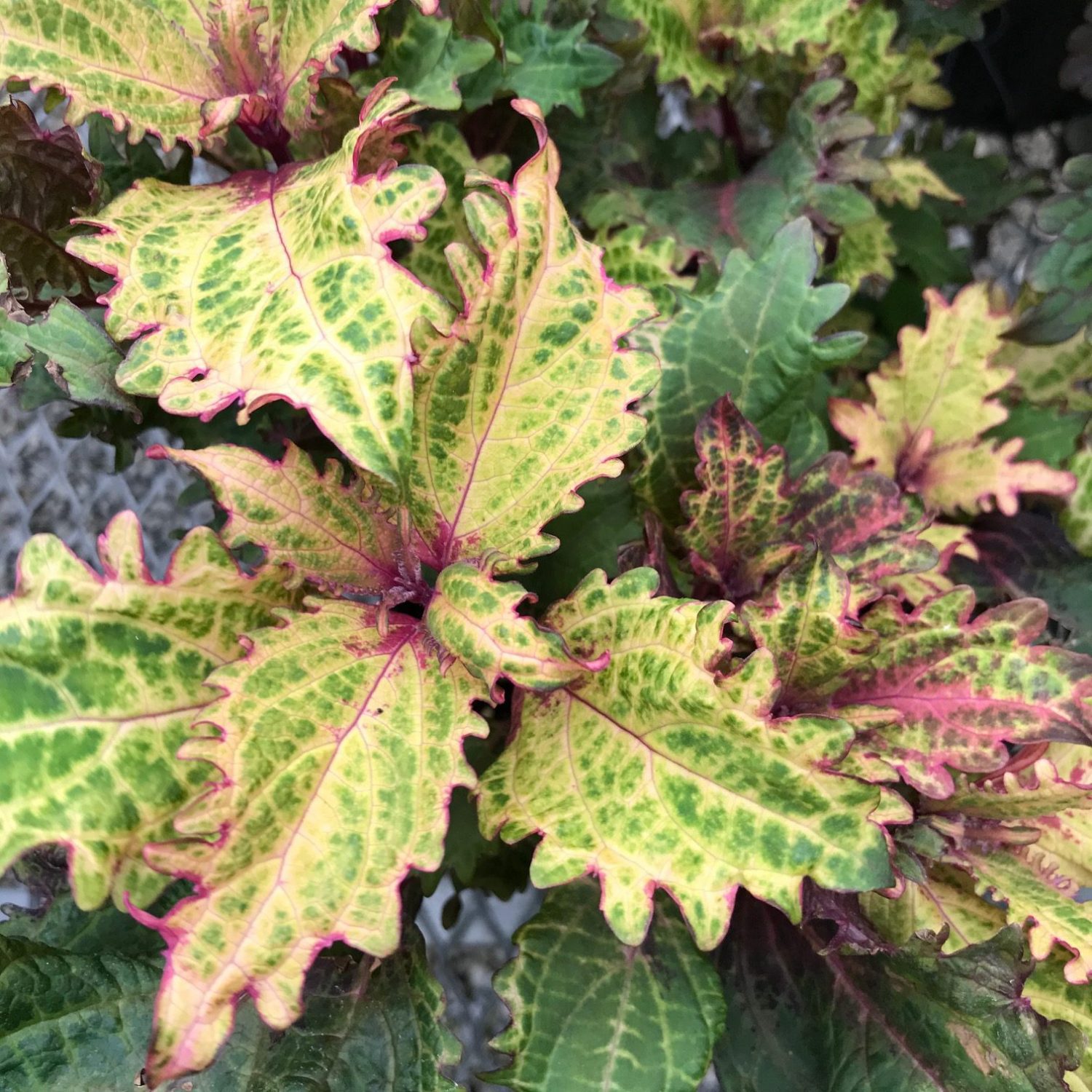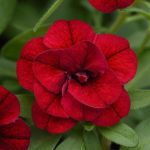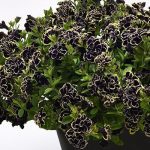Coleus, Peter Wonder
Price range: $6.99 through $8.99
Plant, Zone 9+
Discount per quantity
| Quantity | 3 - 8 | 9 - 14 | 15+ |
|---|---|---|---|
| Price | Price range: $6.78 through $8.72 | Price range: $6.57 through $8.45 | Price range: $6.29 through $8.09 |
| % Discount | 3% | 6% | 10% |
Description
Bright Drama in the Shade: Growing Coleus ‘Peter Wonder’
Meet ‘Peter Wonder’
Coleus ‘Peter Wonder’ is a living fireworks show. Each leaf splashes green, pink, cream, and red in bold, jagged strokes. The plant grows like a tidy little bush, usually 12–18 inches tall and wide. It fills gaps, edges pots, and steals the spotlight even on cloudy days. In other words, it is color that never waits for a bloom.
Why Gardeners Love It
We love ‘Peter Wonder’ because it stays bright from spring through frost. You do not need blooms to feel joy. The leaves carry the story. The plant also plays well in both gardens and indoor pots. Instead of making you fuss, it tells you when it needs help. Drooping leaves say “I’m thirsty.” Pale color says “I need more light.” That honesty makes care simple.
Light: Finding the Sweet Spot
Coleus comes from the warm understory of tropical forests. ‘Peter Wonder’ follows that roots. Bright, filtered light keeps the colors sharp. Morning sun is fine. Hot afternoon sun can scorch soft tissue. Place outdoor plants where they see gentle rays before noon, then enjoy high bright shade later. Indoors, set pots near an east or north window. After more than a week, watch the colors. Too much dim shade turns pink patches dull. Slide the pot closer to the glass until pigments glow again.
Soil and Potting Mix
Loose soil means happy roots. Use a rich peat-based mix with extra perlite for drainage. If you plant in the ground, mix aged compost into native soil. Good compost feeds microbes, holds water, and keeps air pockets open. Heavy clay keeps feet wet and invites root rot. Sandy soil dries too fast. Blend them with compost and coconut coir to find balance.
Watering: Keep It Even
Coleus drinks often but hates soggy shoes. Push a finger into the top inch of soil. If it feels dry, water until liquid flows from the pot base. Outside, water garden beds when the top two inches turn crumbly. Early morning is best. Wet leaves overnight invite mildew. In hot midsummer, you may water daily. Containers dry faster than beds; glaze-coated clay pots hold moisture longer than unglazed terra-cotta.
Feeding for Bold Color
Food feeds tint. Use a balanced liquid fertilizer—like 10-10-10—every two weeks in active growth. Dilute to half label strength to avoid leaf burn. Slow-release pellets scratched into soil each spring give a steady trickle of nutrients. If colors fade mid-season, side-dress with a light sprinkle of worm castings. Organic matter supplies micronutrients that boost pink and red pigments.
Pinching and Pruning
‘Peter Wonder’ loves a haircut. Pinch the growing tip after two sets of leaves appear. Each pinch makes two new branches, doubling fullness. Repeat every two weeks until late summer. If tiny lavender flower spikes emerge, snip them off. This tells the plant to push energy back to leaves instead of seed. But most of all, regular pinching shapes a dense, bushy mound that looks lush and neat.
Temperature and Humidity
As a tropical native, coleus relishes warmth. Ideal air sits between 65–85 °F. Night dips below 50 °F can stall growth and mute color. Frost ends the show, so wait until nights stay above 55 °F before planting outside. Humidity above 50 percent keeps edges from crisping. Indoors in winter, group pots on trays of pebbles and water. Evaporation lifts moisture around leaves without drowning roots.
Overwintering Indoors
When chilly nights whisper of autumn, dig outdoor plants and pot them up. Trim stems back by one-third to fit space and reduce stress. Check for pests. Quarantine new indoor arrivals for a week. Then place them near bright light and reduce feeding. Water when the top inch dries. Next spring, take six-inch tip cuttings and root them in water or damp vermiculite. In other words, one parent plant can raise a new family.
Pests and Problems
Healthy coleus rarely suffers disease. Still, watch for aphids, mealybugs, and spider mites. They cluster under leaves and suck sap, leaving pale spots. A weekly shower keeps dust off and washes tiny pests away. If numbers rise, spray insecticidal soap or neem oil, covering leaf undersides. Black spots may signal bacterial leaf blight; cut away infected parts and improve air flow. Root rot follows soggy soil. Let pots drain and never leave them sitting in saucers of water.
Propagation Made Simple
Coleus cuttings root faster than you can say “wow.” Snip a non-flowering tip four inches long. Remove lower leaves. Slide the stem into a glass of fresh water, keeping one node submerged. Place in bright shade. Roots appear inside a week. Pot the cutting once roots reach one inch. Instead of water, you can stick cuttings into moist seed-starting mix. Cover with a clear dome to hold humidity. After more than two weeks, tug lightly. Resistance means roots.
Design Ideas
Color blocking
: Plant ‘Peter Wonder’ in a drift beside solid green hostas. The bright leaves pop against calm neighbors.
Upright partners
: Pair with purple fountain grass. Fine blades rise, broad coleus leaves spread. Contrast draws the eye.
Shade baskets
: Combine with trailing golden lysimachia for a glow that spills over edges.
Bold carpets
: Mass plants along a walkway. Visitors walk through living confetti.
Companion Plants
- Ferns for soft, feathery texture
- Begonias for matching moisture needs
- Impatiens for more blooms in shade
- Heuchera for leaf-to-leaf color play
- Caladiums for tropical flair in midsummer
Container Combos
Thrill-Fill-Spill Plan
Thrill
: Spiky dracaena or dwarf banana
Fill
: Coleus ‘Peter Wonder’ holding center stage
Spill
: Sweet potato vine ‘Marguerite’ tumbling down
Pastel Play
Mix ‘Peter Wonder’ with dusty miller and pink petunias. Silver, soft pink, and mottled leaves create calm. Set the pot near a shaded patio seat.
Landscape Uses
- Edge shady beds for a bright border.
- Cluster near a porch to greet guests.
- Weave through perennials for all-season interest.
- Plant under young trees to cover bare soil until canopies thicken.
- Use as a quick annual hedge along vegetable plots. The leaves hide bare earth while crops grow tall.
Indoor Style
Set a single plant in a white ceramic pot. Place it on a mid-century stand near filtered light. The colors dance against clean lines. Or group three pots of different coleus varieties. Variety excites the eye. Rotate plants weekly so each side shares the sun.
From Garden to Art Projects
Pressed leaves hold color for months. Flatten them between paper towels under heavy books. After a week, mount them on cardstock for handmade cards. Children love tracing the jagged outlines in crayons. You can also float fresh leaves in bowls during summer parties. They act as natural confetti on water surfaces.
Common Questions
Will it grow in full sun?
Morning sun is safe. Hot afternoon sun is risky. Test one plant first.
Is it toxic to pets?
Coleus may upset stomachs if cats or dogs chew large amounts. Keep pots out of reach and provide safe cat grass nearby.
Why do leaves drop?
Sudden chill or dry soil can cause leaf shed. Warmth and steady watering help leaves rebound.
Can I save seeds?
Hybrid coleus rarely comes true from seed. Cuttings keep colors faithful.
How often should I repot?
When roots circle the pot base, shift to a container one size larger, usually every spring.
Stepping Back: The Magic in Your Hands
Coleus ‘Peter Wonder’ asks for simple things—light, warmth, and even moisture. Give those gifts, and it returns a festival of color every day. We garden to feel alive, to paint the earth without a brush. This plant lets us do that with ease. Place it where shade steals joy, and watch the space brighten. Pinch, water, feed, and share cuttings with friends. Before long, whole neighborhoods glow with the same wonder. That is the true power of one little plant.
Additional information
| Weight | N/A |
|---|---|
| Options | Starter Plug – 3 count, 4 in. (16.9 fl. oz.) Pot |





